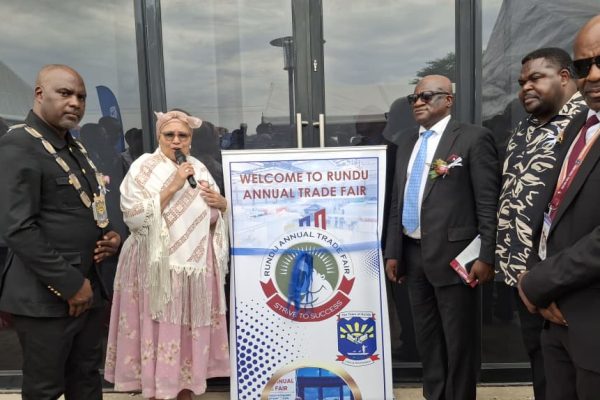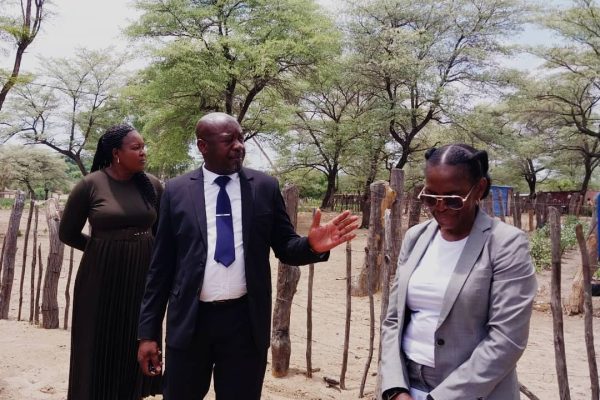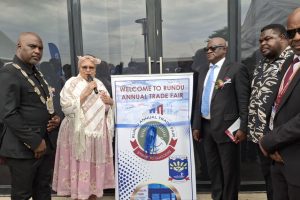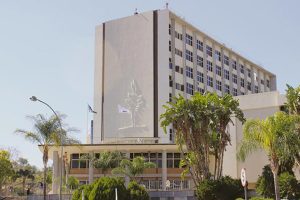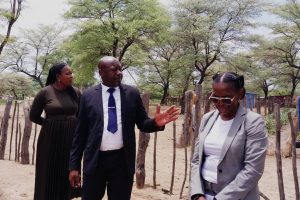
By: Loise Shiimi
President Netumbo Nandi-Ndaitwah has called for a fairer financial system, highlighting the disparities in borrowing terms faced by developing countries compared to those in the Global North.
She pointed out that while both regions rely on the same financial institutions, developing countries often encounter harsher terms, making borrowing more expensive, while it remains more affordable for countries in the Global North, a situation she deemed unjust.
“The current international financial architecture, rooted in the Bretton Woods system, must evolve to reflect the realities of today’s multipolar and interconnected world. We support reforms that amplify the voices of developing countries, enhance access to concessional finance, and deliver climate and development finance at scale,” she stated.
Nandi-Ndaitwah made these remarks during a fireside interaction with Ambassador Jendayi Frazer at a Council on Foreign Relations event in New York.
Moreover, she stressed that punitive interest rates, inflexible conditions, and delayed disbursements undermine the resilience that the global financial system seeks to promote. “A fairer financial order must be a global priority,” she said.
Regarding Namibia’s vision, Nandi-Ndaitwah articulated a clear agenda centred on fostering a peaceful, inclusive, and resilient democracy that leverages human capital, natural resources, and geographical advantages to build shared prosperity domestically, regionally, and through global partnerships.
She outlined a national agenda focused on transformation and economic diversification beyond primary commodities, aiming to build productive capacities in key sectors such as oil and gas, green hydrogen, agriculture, and agro-processing. These sectors, she noted, are foundational to Namibia’s growth strategy, which also includes investments in infrastructure, logistics, and human development.
“Namibia is rich in critical minerals like lithium, uranium, and rare earth elements, which are vital for the global energy transition. We are committed to ensuring that our mineral wealth is processed and beneficiated locally, generating jobs, facilitating technology transfer, and creating shared value,” she declared.
Additionally, she pointed to Namibia’s strong commitment to regional integration through organisations such as the Southern African Development Community (SADC), the Southern African Customs Union (SACU), and the African Continental Free Trade Area (AfCFTA), underscoring the nation’s dedication to strengthening resilient intra-African trade systems.
In light of recent trade developments, Nandi-Ndaitwah announced that Namibia had recently completed its first export under the AfCFTA framework from the port of Walvis Bay.
“This marks a significant step towards realising the promise of a unified continental market, enabling small states like ours to scale production and seize new opportunities. Namibia values its longstanding relationship with the United States, which is based on cooperation in public health, education, governance, and sustainable development,” she remarked.
Furthermore, she articulated Namibia’s desire for deeper collaboration in areas such as energy, critical minerals, digital innovation, and capacity-building.
“We seek partnerships that align with our national priorities and respect our sovereign development choices, anchored in mutual respect and shared benefits,” she added.
Namibia also welcomes engagement with institutions like the Council on Foreign Relations, viewing them as thought partners and strategic allies in advancing a more equitable global order grounded in cooperation, respect, and shared goals.


